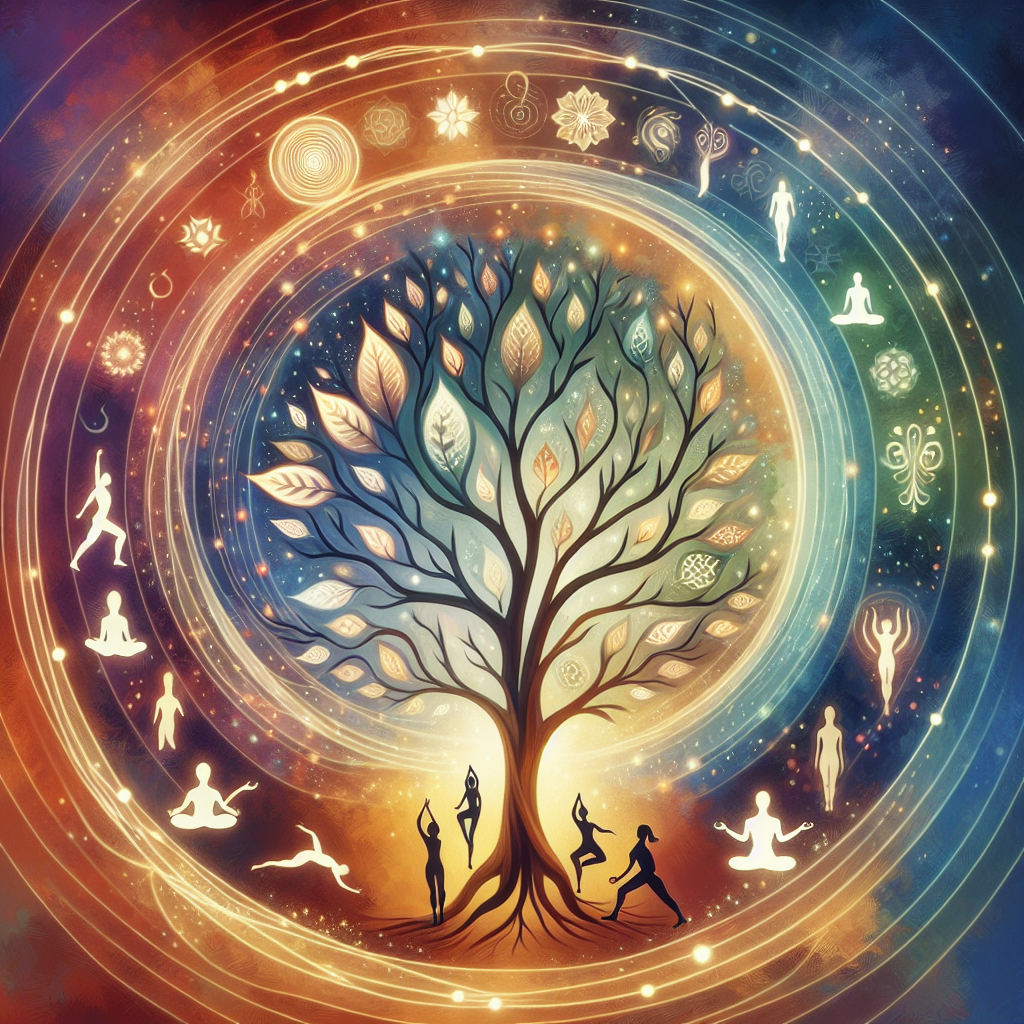The concept of karma, often reiterated in various spiritual traditions and philosophies, holds that our actions—good or bad—have profound consequences on our lives and well-being. Derived from the Sanskrit word "karman," meaning "action" or "deed," karma is deeply woven into the fabric of Eastern philosophy, particularly in Buddhism and Hinduism. However, its implications resonate beyond these traditions, inviting us to reflect on how our choices shape our existence and contribute to our healing journeys.
Understanding Karma
At its core, karma is the idea that every action creates a corresponding reaction. This law of cause and effect suggests that our lives are influenced not only by our current circumstances but also by past actions—our own and those of others. In a spiritual context, karma transcends mere punishment or reward; it serves as a motivational tool for personal growth and moral development.
Karma can be divided into three types:
Sanchita Karma: This refers to the accumulated karma from past lives. It embodies all the actions we have undertaken throughout our existence, both positive and negative. Sanchita karma serves as a reservoir from which we draw experiences in our present life.
Prarabdha Karma: This is the portion of accumulated karma that is currently being experienced. It is the karma that influences our present life circumstances, such as relationships, health, and wealth. Prarabdha karma is considered irrevocable in the sense that it can only be worked through and transformed through conscious action.
- Kriyamana or Agami Karma: This type refers to the actions we are currently taking that will affect our future. It’s an ongoing process through which we cultivate future opportunities or misfortunes based on our present choices.
To heal through karma, we must recognize the connections between our actions and their repercussions. This awareness leads to a transformative process, allowing us to embrace responsibility for our behavior and its impact on our well-being.
The Connection Between Action and Well-Being
The repercussions of our actions extend into our physical, emotional, and spiritual health. When we engage in negative behaviors—such as dishonesty, anger, or selfishness—we often create a cycle of negativity that can manifest as stress, anxiety, and resentment. Conversely, positive actions—such as kindness, forgiveness, and generosity—contribute to emotional healing, personal growth, and overall well-being.
Emotional Healing
Emotional healing is greatly influenced by the karmic pattern of our actions. Understanding that maintaining a positive attitude and acting compassionately towards others not only uplifts those around us but also nurtures our emotional state can lead to significant healing.
For instance, performing acts of kindness releases endorphins, the body’s natural painkillers, helping to combat feelings of sadness or anxiety. Additionally, supporting others through their struggles can lead to feelings of fulfillment, reminding us of our shared humanity and creating supportive networks that enhance our emotional well-being.
Physical Health
The link between karma and physical health can be seen in how stress affects bodily functions. Engaging in negativity can heighten stress, leading to chronic health issues such as hypertension, weakened immune function, and inflammation. By recognizing the karmic cycle, we can strive to replace negative behaviors with positive alternatives, which may include exercise, healthy eating, or relaxation techniques.
Moreover, the practice of mindfulness—centering our thoughts on the present moment—can aid in breaking the cycle of negative karma. Mindfulness promotes awareness of our thoughts and actions, helping us to make deliberate choices that foster healing and well-being.
Spiritual Growth
Karma is not only about the immediate effects of our actions on our current lives; it also does play a role in our spiritual evolution. The awareness of karma can be a catalyst for spiritual awakening, prompting us to seek higher truths and a deeper understanding of our existence and connection to the universe.
Practicing self-reflection and examining our actions in relation to the broader tapestry of life encourages a sense of responsibility and ethical consideration. Such reflective practices may include journaling, meditation, or spiritual discussions, which facilitate self-discovery and deeper understanding of our karmic patterns, promoting healing on a spiritual level.
Cultivating Positive Karma
Given that our actions shape our reality, it’s essential to cultivate positive karma intentionally. Here are some effective strategies for doing so:
Practice Mindfulness: By becoming aware of our thoughts and behaviors, we can make more conscious choices that align with our values and promote well-being.
Show Compassion: Seeking to empathize with others and offer support fosters positive relationships and enhances emotional health, contributing to a cycle of goodwill.
Engage in Forgiveness: Letting go of past grievances not only frees us from unhealthy attachments but also fosters emotional healing and strengthens our resilience.
Be Grateful: Practicing gratitude shifts our focus from what we lack to recognizing the abundance in our lives, enhancing overall well-being and happiness.
- Take Responsible Action: Acknowledging and taking responsibility for our actions leads to personal growth and a heightened sense of empowerment.
Conclusion
Healing through karma is a holistic approach that considers how our actions shape our emotional, physical, and spiritual well-being. By understanding the dynamics of karma, we open the door to personal transformation and the potential for a more fulfilling life. In a world often characterized by chaos and confusion, the principles of karma provide a grounding framework for navigating life’s challenges and fostering positive change.
FAQs
1. Does karma only apply to actions in this life, or does it encompass previous lives?
Karma encompasses actions from previous lives, shaping our current circumstances and experiences. Sanchita karma includes all accumulated actions while prarabdha karma pertains to what we are currently experiencing.
2. Can negative karma be changed or transformed?
Yes, negative karma can be transformed through conscious, positive actions. Engaging in positive behaviors, practicing forgiveness, and cultivating mindfulness can help mitigate the effects of past negative karma.
3. Is the concept of karma synonymous with fate?
Karma and fate are different concepts. Karma is based on the idea of cause and effect, where our actions influence our experiences. Fate suggests a predetermined outcome, which may not consider individual actions and choices.
4. How can I begin to work on my karma?
Start with self-awareness by reflecting on your thoughts and actions. Engage in positive practices—such as compassion, gratitude, and mindfulness—and take responsibility for your actions to cultivate positive karma.
5. Can karma affect relationships?
Yes, our actions significantly shape relationships. Positive actions can strengthen connections, while negative behaviors can lead to conflict. Being mindful of our behavior fosters healthier relationships and contributes to emotional well-being.
It looks like your message was cut off. Could you please provide more details or clarify what you’d like help with?, #Healing #Karma #Actions #Shape #WellBeing, #Healing #Karma #Actions #Shape #WellBeing, 1736198052, healing-through-karma-how-your-actions-shape-your-well-being





